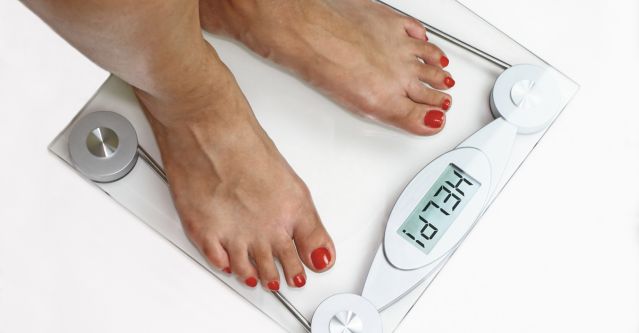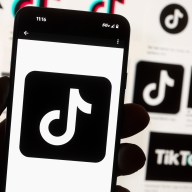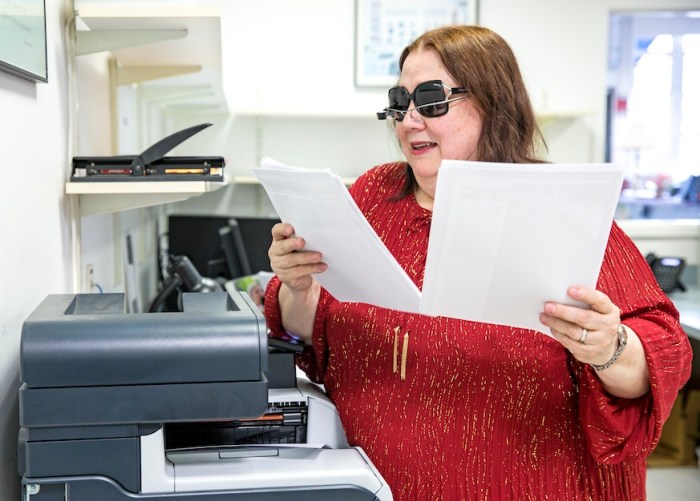If you’re trying to shed some pounds, you’ve probably already tried some calorie counter or diet tracking apps.There are more than 100 of these kind of apps available for users in the app stores, like the famous MyFitnessPal, which has 100 million registered users worldwide, but just a few have been tried and tested by professionals. Related: 5 reasons why some runners don’t lose weight According to ongoing research by Carnegie Mellon University’s Integrated Innovation Institute, these apps are only helpful to people who want to monitor an already healthy life. Their latest report, which includes interviews with 2,000 men and women between the ages of 18 to 34 years old, showed that 66 percent of those who care about their diet and regular exercises find the apps very useful, while 67 percent of people who are less serious about their wellbeing don’t benefit from these tools. On the other hand, a recent study carried out by the School of Nutrition and Health Promotion of Arizona State University, in Phoenix, found that dietary self-monitoring is linked to successful weight loss. The authors, who compared one popular smartphone app to traditional diet counseling and entry methods, saw that the technology was beneficial to the participants. Related: Mark Wahlberg’s fitness secret “Surveys are always fine. The problem is that they rely on self-reports which assume that people have insight into their own behavior. But some people say they love an app even when it doesn’t work for them,” says Bonnie Spring, PhD, Professor of Preventive Medicine, Psychology, Psychiatry and Public Health at Northwestern University. “Results seem to be best when participants are more active and use the app regularly to self-monitor their diet and activity, in addition to seeking out social support for their weight loss efforts.” Using apps to monitor daily habits seems to make sense for most people since our lives are mobile and digital these days, but it is very important to talk with a health expert if you’re thinking of taking on a new diet. “About two-thirds of us are overweight or obese, so obesity is a common problem, and appearance pressures are especially strong for women. But it’s necessary to consult with a healthcare professional before undertaking any diet or exercise plan, particularly if you have any health issues,” explains Pamela Rutledge, psychologist and director of the Media Psychology Research Center. Another reason why it’s important to see a doctor first, she explains, is to manage a person’s expectations, nutrition and goals. “A nutritionist can explain the importance of a variety of nutrients and set reasonable calorie targets. If you need to lose 20 pounds, for example, think about how long it took you to gain that weight and give yourself that long to take it off,” says Rutledge. “The problem is that most people think weight loss is simply the result of calories taken in minus calories burned. The body is a complex mechanism, so by reducing calories too drastically, increasing exercise too rapidly or eating ‘low quality’ calories, such as candy, can have the opposite effect of what you intend and may result in problems, like hormonal imbalance, oxidative stress, and chronic inflammation.” Benefits and popularity For example, you can keep track of what and how much you’re eating because normally we eat without thinking about it. “It’s really good when people can learn something about their own eating habits and lifestyle activities. But one risk to be mindful about, is that some obese adults have diabetes and exercise increases the body’s sensitivity to insulin, which can cause glucose to fall too low after exercise. So, if you have diabetes, or a family history of diabetes, it’s wise to ask your doctor about a plan,” warns Spring. Another positive side to apps is that it can stimulate social support, whether it’s online or in person, and it’s much easier to stick to a diet or exercise plan if you have a friend to spur you on at the gym. “Many apps now link to social media so you can post progress with friends. Some allow you to make teams so that you can encourage each other virtually. Social support helps you to stay on track by putting things in perspective,” explains Rutledge. Fitness apps, which are considered a successful business by tech companies, are some of the most popular products to download, even without the scientific approval behind them. According to the organization Patient Privacy Rights, apps in the U.S. are not covered by any regulation and much of their collected information doesn’t count as health data because it asks for regulatory approval. This can cause a clash between governments, tech companies and the patients about who owns the data, so the most reasonable thing to do was to build a central health database, as the UK is planning to do soon. “I think different stakeholders have different reasons for engaging with apps. Health and fitness apps may be popular with users because people are starting to believe that they can take control of their health with a little boost from this technology,” explains David E. Conroy, professor in the Department of Preventive Medicine, Northwestern University Feinberg School of Medicine. “And of course, they may be popular among developers because they see a potentially lucrative market for these products.” A new study, led be Conroy, found that people are becoming too reliant on the app’s self-monitoring apps and expect technology to solve all of our health and fitness woes, without minimal human input. His team, who published a study in the journal Translational Behavior Medicine, in 2011 reviewed the “first generation” of weight loss apps”, which were on the market between 2007-2009. They ranked the apps in relation to their coverage of evidence-based recommendations for weight loss. “What we found was that most lacked evidence-based strategies and a few had highly questionable content. Since we have published those findings, others who independently reviewed more recent apps, have found similar results and have come to similar conclusions. Therefore, it is important to inform the consumer about weight loss and weight management apps”, explains Fuemmeler.
According to the consulted experts, the apps are positive for users because they offer behavioral feedback and help individuals engage in healthy actions.
According to Bernard Fuemmeler, Associate Professor Community and Family, Durham, North Carolina, it’s too early to say something concrete about apps for weight loss and fitness, because we don’t have enough information at the present time to confirm their effectiveness. “There are only a few studies about it, all different, and we need invest more on it”, he says.
Apps to lose weight: do they really work?


















